What sort of novel do you want to write?
What does your restaurant offer?
What about that new record you're recording?
It's tempting indeed for you to seek to be high quality, low priced, durable, with excellent service, less filling, better taste, poetic phrasing, conveniently located, powerful characters and organic. All at once.
But that's not how humans process what you have to offer.
Consider some classic, bestselling novels or memoirs. Snow Crash matters because of the ideas within. Harry Potter worked because the plot kept kids riveted. The language in Patti Smith's Just Kids is perfect, and the characters in To Kill a Mockingbird are unforgettable. Of course, each book has the other elements in some measure, but it's the one thing that sticks with us.
Zappos might have good prices, but it's the service we talk about. Tom's might have fashionable shoes, but it's the pay it forward that resonates. And your iPhone might have good download speed, but it's the design and fashion that we pay for.
All a way of helping you think about the many disconnected points on the edge of the sphere in your industry. Pick one to exceed expectations in, while making sure everything else is good enough.


from Seth Godin's Blog on marketing, tribes and respect http://feeds.feedblitz.com/~/521554324/0/sethsblog~Your-corner-of-the-sphere.html
 Microsoft posted a relatively good second quarter this year that continued the ongoing process of its growth into a major cloud entity, in addition to saying it would be taking a significant charge as part of the major tax bill signed late last year. In particular, Microsoft said that its Azure revenue grew 98% year-over-year — a long-running theme alongside many other lines that equate… Read More
Microsoft posted a relatively good second quarter this year that continued the ongoing process of its growth into a major cloud entity, in addition to saying it would be taking a significant charge as part of the major tax bill signed late last year. In particular, Microsoft said that its Azure revenue grew 98% year-over-year — a long-running theme alongside many other lines that equate… Read More The competition between Alexa and Google Assistant is fierce. How fierce? Cover all of Las Vegas in Google Assistant ads for CES fierce? Put voice assistance in weird things like a light switch or a fridge fierce? How about “don’t dare utter our competitor’s name in your voice app” fierce? Yep, Amazon has banned Alexa app developers from saying “Google”…
The competition between Alexa and Google Assistant is fierce. How fierce? Cover all of Las Vegas in Google Assistant ads for CES fierce? Put voice assistance in weird things like a light switch or a fridge fierce? How about “don’t dare utter our competitor’s name in your voice app” fierce? Yep, Amazon has banned Alexa app developers from saying “Google”…  Ah, the Super Bowl. That magical time of year we gather around the T.V. set and pay just as much attention to the ads that run between plays. Increasingly, though, you can get much of that precious advertising viewing experience out of the way before the big game even starts. After offering a brief online tease for its upcoming ad, Amazon’s gone ahead and posted all 90 seconds of…
Ah, the Super Bowl. That magical time of year we gather around the T.V. set and pay just as much attention to the ads that run between plays. Increasingly, though, you can get much of that precious advertising viewing experience out of the way before the big game even starts. After offering a brief online tease for its upcoming ad, Amazon’s gone ahead and posted all 90 seconds of… 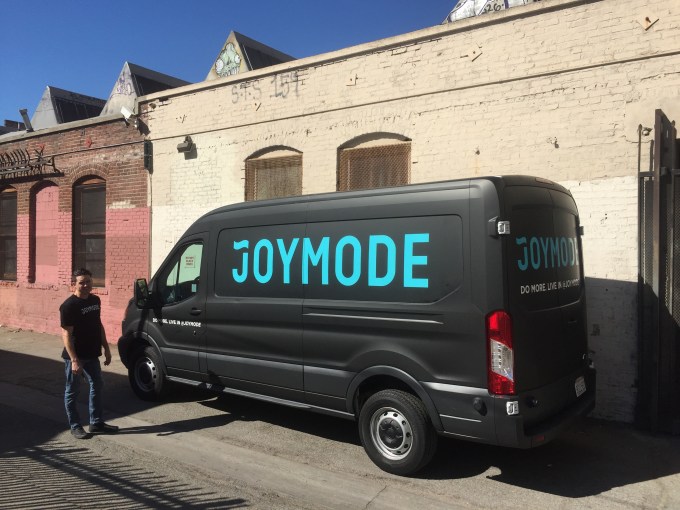 What began as a movement among couture culturati with the success of Rent the Runway has moved into everything from cars (Porsche’s got a subscription service ) to construction equipment and furniture. Well, the Los Angeles-based startup Joymode has just raised $14 million to be the subscription service for nearly everything else.
What began as a movement among couture culturati with the success of Rent the Runway has moved into everything from cars (Porsche’s got a subscription service ) to construction equipment and furniture. Well, the Los Angeles-based startup Joymode has just raised $14 million to be the subscription service for nearly everything else. 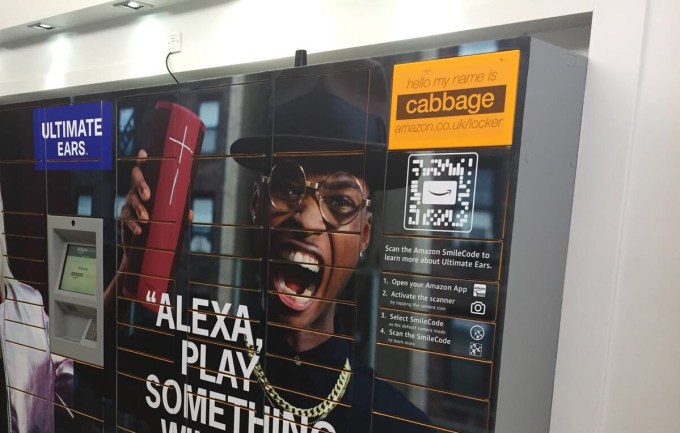 QR code style markers — those lil’ barcode-looking boxes you’ll see on ads from time to time, meant to be scanned with your phone to launch some website or app — have yet to really find their footing in the US. But that’s not going to keep Amazon from taking a stab at it. Amazon is rolling out its own take on the concept and calling them “SmileCodes”.…
QR code style markers — those lil’ barcode-looking boxes you’ll see on ads from time to time, meant to be scanned with your phone to launch some website or app — have yet to really find their footing in the US. But that’s not going to keep Amazon from taking a stab at it. Amazon is rolling out its own take on the concept and calling them “SmileCodes”.…  Investors panicked this morning upon the news Amazon, JPMorgan Chase and Berkshire Hathaway were teaming up to launch a health insurance company for their U.S. employees. Healthcare is one of the biggest operating costs for Fortune 500 companies and the three iconic companies have joined forces to build a new health insurance company for all U.S. employees in an effort to improve satisfaction…
Investors panicked this morning upon the news Amazon, JPMorgan Chase and Berkshire Hathaway were teaming up to launch a health insurance company for their U.S. employees. Healthcare is one of the biggest operating costs for Fortune 500 companies and the three iconic companies have joined forces to build a new health insurance company for all U.S. employees in an effort to improve satisfaction… 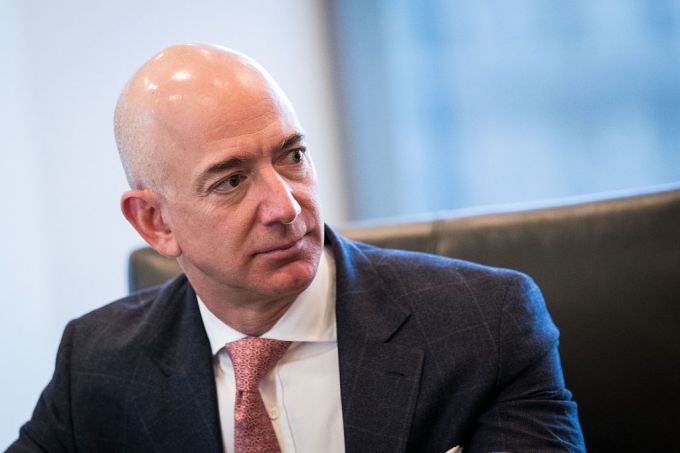 JPMorgan Chase and Berkshire Hathaway have joined forces with Amazon to form a new healthcare company for all U.S. employees. Right now details are so sparse that there’s not even a name associated with the new company. However, this is big news for the industry and could possibly have ramifications not only for health insurance giants, but for also smaller tech companies that are open…
JPMorgan Chase and Berkshire Hathaway have joined forces with Amazon to form a new healthcare company for all U.S. employees. Right now details are so sparse that there’s not even a name associated with the new company. However, this is big news for the industry and could possibly have ramifications not only for health insurance giants, but for also smaller tech companies that are open… 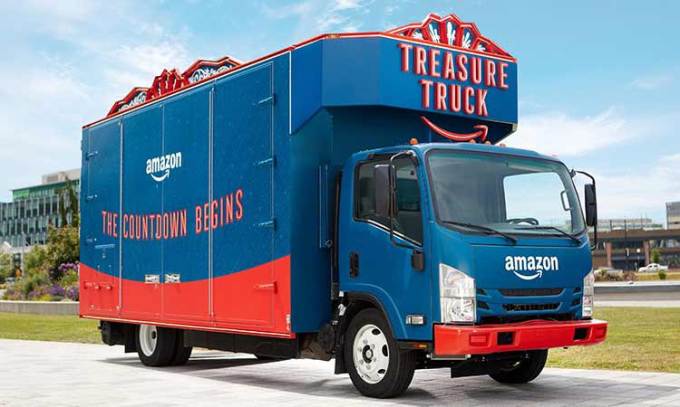 Amazon Treasure Truck, the retailer’s deals-on-wheels program that is literally a truck driving around with discounted products you can buy online and pickup in person, will now be popping up at Whole Foods. The companies announced today that Treasure Truck will start coming to Whole Foods stores with new offers, starting with today’s deal on the popular kitchen item, Instant Pot.…
Amazon Treasure Truck, the retailer’s deals-on-wheels program that is literally a truck driving around with discounted products you can buy online and pickup in person, will now be popping up at Whole Foods. The companies announced today that Treasure Truck will start coming to Whole Foods stores with new offers, starting with today’s deal on the popular kitchen item, Instant Pot.…  With Event Grid, Microsoft introduced a new Azure service last year that it hopes will become the glue that holds together modern event-driven and distributed applications. Starting today, Event Grid is generally available, with all the SLAs and other premises this entails.
With Event Grid, Microsoft introduced a new Azure service last year that it hopes will become the glue that holds together modern event-driven and distributed applications. Starting today, Event Grid is generally available, with all the SLAs and other premises this entails. 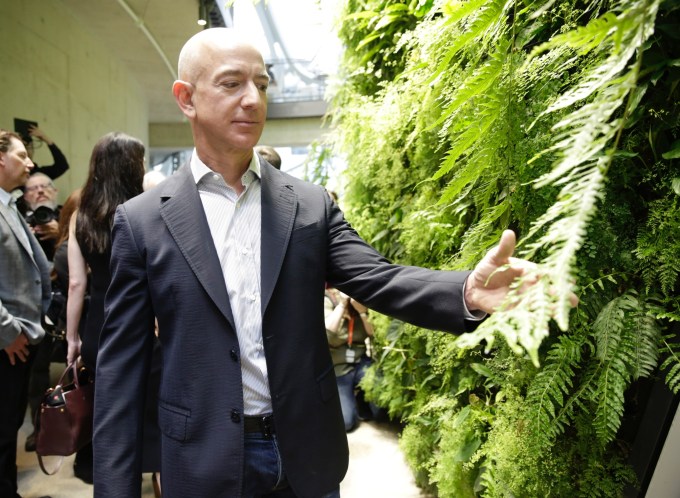 When you’re big enough and powerful enough, you don’t need to rely on the existing private healthcare providers out there to handle your employee medical needs. That’s what Amazon, Berkshire Hathaway and JPMorgan Chase have determined, and so they’re working together to build their own, fully independent employee healthcare company, which will exclusively offer benefits…
When you’re big enough and powerful enough, you don’t need to rely on the existing private healthcare providers out there to handle your employee medical needs. That’s what Amazon, Berkshire Hathaway and JPMorgan Chase have determined, and so they’re working together to build their own, fully independent employee healthcare company, which will exclusively offer benefits…  Like most adventurous designs the Spheres are divisive: some call them an eyesore or attention-seeking behavior by Amazon, but others will admire the originality and intelligent use of space. Seattle is no stranger to odd architecture, and the Spheres seem to meld the mind-bending MoPop (formerly the EMP) with the multifaceted complexity of the Central Library.
Like most adventurous designs the Spheres are divisive: some call them an eyesore or attention-seeking behavior by Amazon, but others will admire the originality and intelligent use of space. Seattle is no stranger to odd architecture, and the Spheres seem to meld the mind-bending MoPop (formerly the EMP) with the multifaceted complexity of the Central Library. 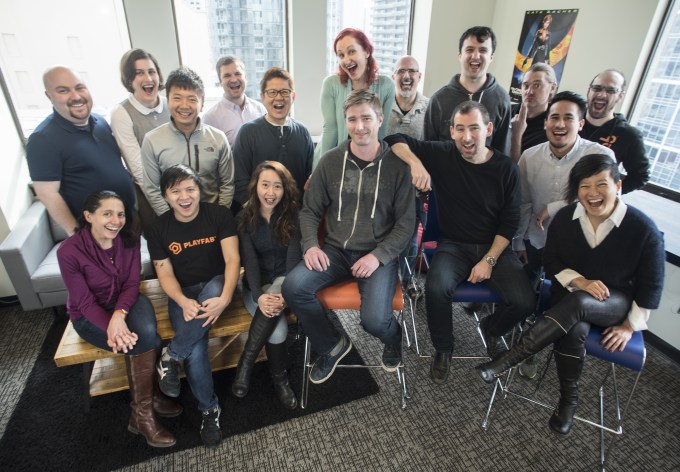 In the latest chapter of GAFAM’s continuing bid to conquer online gaming, Microsoft has acquired PlayFab, which helps game developers launch their titles online more quickly with simplified back-end services. The startup will be integrated into Microsoft’s Azure gaming group.
In the latest chapter of GAFAM’s continuing bid to conquer online gaming, Microsoft has acquired PlayFab, which helps game developers launch their titles online more quickly with simplified back-end services. The startup will be integrated into Microsoft’s Azure gaming group. 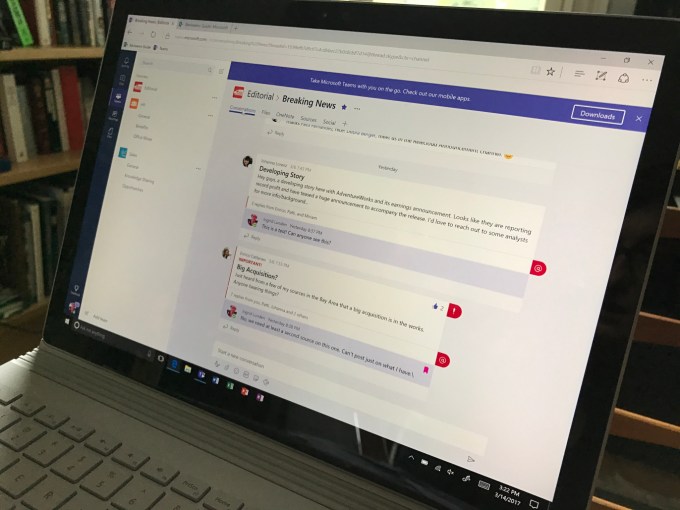 Microsoft’s Slack competitor, Microsoft Teams, rolled out its biggest update since the software’s launch last year, the company says. The focus of the new set of features is allowing users to better work with apps – something Microsoft Teams accomplishes via integrations, new search and discovery features, commands, and more. Some of the features are, in fact, quite…
Microsoft’s Slack competitor, Microsoft Teams, rolled out its biggest update since the software’s launch last year, the company says. The focus of the new set of features is allowing users to better work with apps – something Microsoft Teams accomplishes via integrations, new search and discovery features, commands, and more. Some of the features are, in fact, quite…